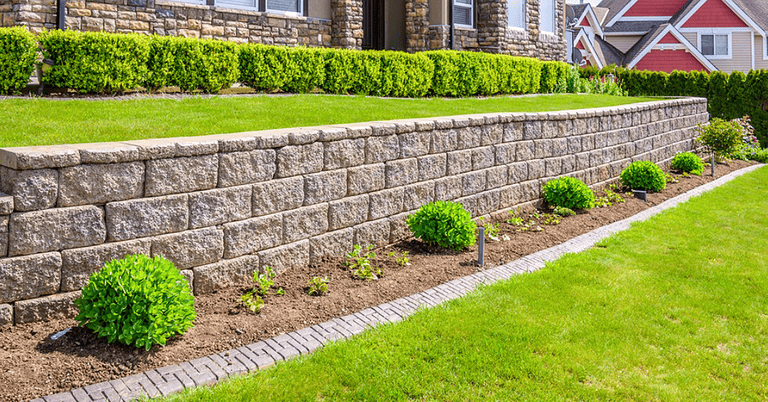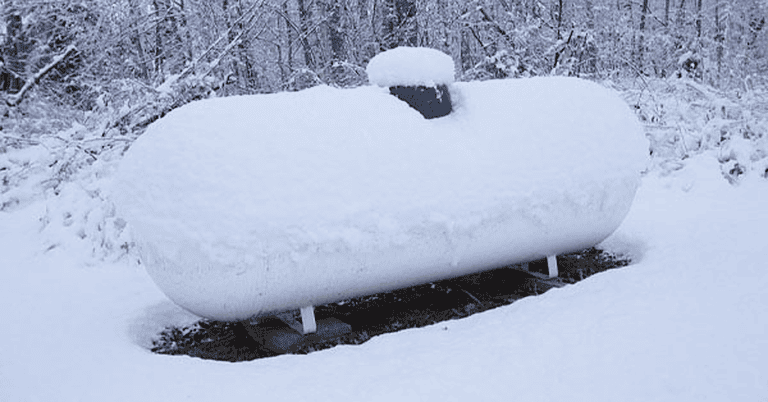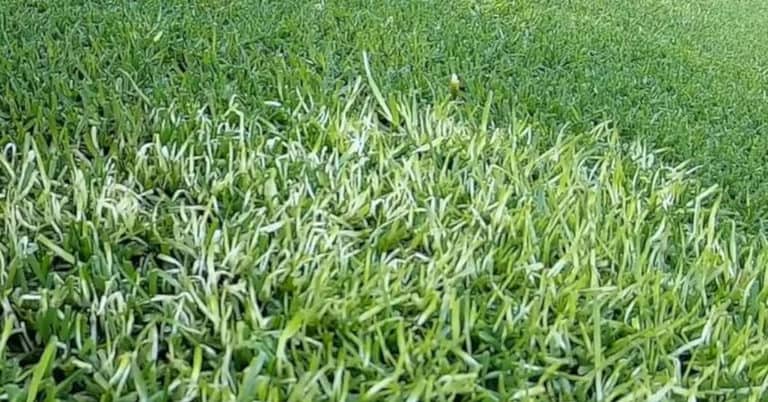How Fast Does Round Up Work
Roundup is a popular herbicide widely used to eliminate unwanted plant growth rather than pulling weeds all day. But one question that many people have is how long does it take for weed killer to work? The answer depends on various factors, including the type of plants you’re trying to kill, the weather, and how you apply the weed-killer product.
Roundup works by penetrating the plant’s leaves and traveling down to the root system, destroying the plant’s ability to grow. You may see visible results for annual weeds within a few hours to a few days of application, while perennial weeds may take one to two weeks to die off fully. It’s important to remember that Roundup is a non-selective herbicide, meaning it can kill any plant it comes into contact with.
So, it’s essential to be careful when using the premixed glyphosate formula product around desirable plants and nearby vegetation. Wearing protective clothing and using a tank sprayer or sure shot wand can help you apply Roundup precisely where you need it without accidentally spraying nearby plants.
In our guide, you can learn more about how long does it take for RoundUp to work on stubborn weeds? By the end, you’ll better understand the time for how long for Roundup to work, the precautions you need, and factors that affect the performance of products like RoundUp Max Control 365. (Read Pros and Cons of Mixing Bermuda and St Augustine Grass for Your Lawn)

What Is Roundup?
If you seek an effective and easy-to-use weed killer, Roundup is a popular choice. Roundup is a non-selective herbicide that kills weeds and plants. It is a product of the Scotts Miracle-Gro Company. It is available in various formulations, including sprays, concentrates, and ready-to-use refills to deliver dead weeds you can dispose of. Any Roundup product is effective in killing both annual and perennial weeds, as well as kill grass, woody plants, and other unwanted growth.
Active Ingredient
The active ingredient in Roundup is the herbicide glyphosate, which is absorbed by plant leaves and transported to the roots. Glyphosate works by inhibiting an essential enzyme for plant growth, which causes the plant to wither and die. Roundup also contains other ingredients that help to improve its effectiveness, like surfactants that help the glyphosate penetrate unwanted plants like poison ivy waxy cuticle.
How Does Roundup Work?
When you apply Roundup to the leaves of a plant, you’ll find Roundup work by the plants absorbing the glyphosate, which it then transports to the roots, where it inhibits the enzyme essential for plant growth.
Roundup is rainproof in as little as 30 minutes, so it will not be washed away by rain after application. Roundup also delivers visible results in a few hours, though some formulations take longer to work. For example, Roundup Max Control 365 takes 12 hours to see results, but the trade-off is year-long hassle-free weed control.
Why Roundup With Glyphosate Is So Effective
Roundup weed killer is one of the most popular herbicides on the market, and for a good reason. Its active ingredient, glyphosate, is a non-selective herbicide that targets all types of plants, including annual and perennial weeds, woody plants, and unwanted growth in flower and vegetable gardens.
Glyphosate is so effective because when you spray Roundup, the glyphosate formula is absorbed through the plant leaves and travels through the plant’s system, killing the entire plant. One benefit of using Roundup with glyphosate is that it is a non-selective herbicide, meaning it will kill most plants it comes in contact with, so care is needed around your flower gardens.
This makes it an excellent option for treating large areas with unwanted weeds or growth. However, it is vital to take care when spraying Roundup near desirable plants or new plants, as glyphosate can also kill nearby plants if it comes in contact with them.
Another benefit of Roundup with glyphosate is that it delivers visible results in just a few hours, making it a fast-acting weed killer. Some products are appropriate for Southern grasses and contain herbicides, penoxsulam, sulfentrazone, 2,4-D, dimethylamine salts, and dicamba.
However, some Roundup takes longer to see visible evidence, like Roundup Max Control 365, which takes 12 hours to see visible results. Roundup is a long-lasting weed preventer, with some products providing year-long hassle-free weed control.
It is vital to wear protective clothing when spraying Roundup and apply it only on a sunny day when the weeds are actively growing. Be sure to use a tank sprayer or Sure Shot Wand for precision spraying and avoid accidentally spraying nearby plants or areas where you do not want to kill weeds.

How Long Does It Take For Weeds To Die After Spraying?
Roundup makes many popular weed killers known for their effectiveness in killing weeds. However, it is crucial to know how long does it takes Round Up to kill grass weeds after spraying.
Here are some factors that may affect how long it takes for Roundup to kill weeds:
Factors Affecting Speed
The speed at which Roundup works can be affected by several factors. The type of weed, the size of the weed, and the weather can all affect how long it takes for Roundup to kill the weed. Roundup works best on actively growing less than six inches tall weeds. If the weed is larger than six inches, it may take longer for Roundup to work.
Roundup works best when applied on a sunny day with temperatures between 60 and 85 degrees Fahrenheit. If the weather is too hot or cold, Roundup may not work as effectively. Roundup should be applied when the wind is calm to prevent the spray from drifting onto nearby plants. (Read Wasp Bomb for Under Deck – What To Do)
How Soon Can I Pull Weeds After Roundup?
After applying Roundup, you may be tempted to pull the weeds immediately. However, waiting at least one to two weeks before pulling the weeds is essential. During this time, the Roundup will be absorbed by the plant and will work to kill the weed from the roots. If you pull the weed too soon, you may not remove the entire plant, which may regrow.
Wearing protective clothing when spraying this glyphosate weed killer is also essential. Roundup is a non-selective, so it will kill any plant it comes into contact with. Be careful not to spray desirable or new plants you have recently planted accidentally.
When using Roundup, following the instructions on the label carefully is crucial. Roundup is available in several forms, including a ready-to-use refill, a premixed glyphosate formula, and a sure-shot wand. Several Roundup products are available, including Roundup Max Control, Precision Gel Weed, and Roundup Poison Ivy. Choose the product that is best suited for your needs and follow the instructions carefully.
Overall, Roundup is an effective weed killer to help control unwanted weeds and plant growth in your garden, lawn, or weedy flower beds. With proper use and application, Roundup and weed killers provide visible evidence of weed control within a few days to a few weeks.
How Long Does It Take For Roundup To Dry?
After spraying Roundup on garden weeds, you’ll want to give it time to dry before watering the treated area. This will help ensure the herbicide is absorbed into the plant and not washed away. On a sunny day, Roundup will typically dry within a few hours. However, if it’s cloudy or humid, it may take longer. Be sure to check the label for specific drying times for your Roundup product.

Does Rain Stop Roundup From Working?
While you don’t want to water the treated area right after spraying Roundup, rain won’t necessarily stop it from working. Roundup is resistant to being washed away by rain in as little as 30 minutes after application. However, it’s still a good idea to avoid spraying Roundup if rain is in the forecast within the next few days.
Remember that Roundup is a non-selective herbicide, which means it will kill any plant it comes into contact with. So, if you’re using Roundup in your vegetable garden or flower beds, apply it carefully to avoid accidentally spraying desirable plants. Also, wear protective clothing when spraying Roundup to avoid getting it on your skin or your eyes.
Overall, Roundup works by being absorbed into the plant’s leaves and then traveling down to the roots to kill the entire plant.
The time it takes for Roundup to work can vary depending on the weed type, the plant size, and the weather. For actively growing annual weeds in the early spring, Roundup can take as little as a few hours to show evidence of its effects, but for perennial weeds or woody plants, it may take up to one to two weeks to see results.
How Long Should I Wait Before Planting After Using Roundup?
When using Roundup, it’s essential not to damage any desirable plants in the treated area. Roundup is a non-selective herbicide, meaning it will kill any plant it comes in contact with. Therefore, it’s essential to avoid spraying it on any plants you want to keep. If you accidentally spray Roundup on a desirable plant, you should immediately rinse the plant with water to remove as much herbicide as possible.
Be sure to avoid spraying Roundup on windy days or when the temperature is above 85 degrees Fahrenheit, as this can increase the risk of the herbicide drifting onto nearby plants.
How Long Does It Take For Roundup To Work?
Roundup is absorbed through the leaves of weeds and other plants, then transported throughout the plant’s system. Visible evidence of the herbicide’s effects is usually seen within a few hours of application, with complete plant death occurring within one to two weeks. (Learn How Long Can Flowers Stay In The Fridge)
How Long Does Roundup Stay In The Soil?
The waiting time before planting after using Roundup varies depending on the type of plants you want to grow. According to Scotts, the manufacturer of Roundup, it’s safe to plant ornamental flowers, shrubs, and trees the next day after application.
However, wait at least three days until you have dead weeds before planting grasses, edible plants, and trees. It’s important to note that this short time frame is only advisable when using mild Roundup products, like Roundup Weed & Grass Killer Concentrate and Roundup Ready-to-Use Weed and Grass Killer III.
When using aggressive formulas like Roundup Extended Control or Roundup Weed and Grass Killer Super Concentrate to prevent weeds and unwanted plants, you may need to wait up to 12 months before replanting.







